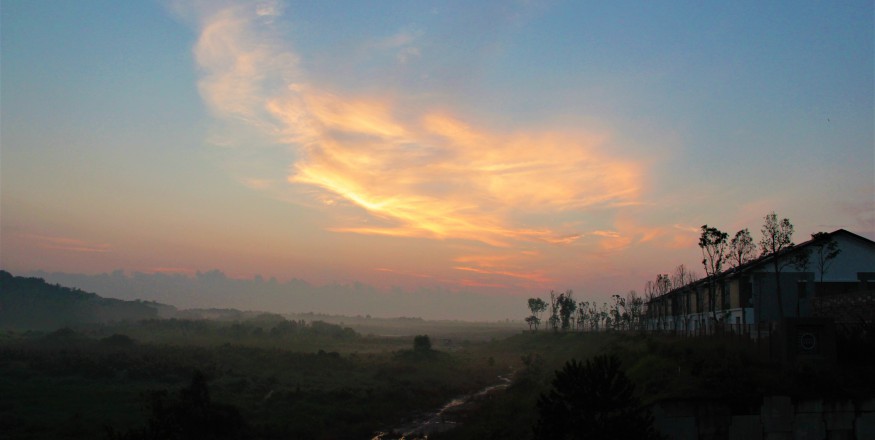Attractions are usually half as beautiful as they appear in picturesque photos shown by bloggers, advertisers, and social media users. However, there are exceptions. Villa Borghese Gardens is one of them.
Along the walkway, just past the rusting gates that once deterred vandalizers and cheeky adolescents, lies an exhibition of flora rarely seen outside of Rome. Cork cedars surround the laid tarmac, forming a second line of defense against the slow creep of high-street buildings. Their branches, trimmed when they were much younger, grow like colossal mushrooms with overlaying green caps — casting a cooling effect over visitors and local joggers.
The trees aren’t the only aesthetically pleasing features; the man-made structures make up the other half of the garden’s charm. Drinking fountains adorned with faces of Greek mythological beasts stand near the main attractions. The Templo di Esculapio, centered in the lake, steals the sense of time from boaters and passersby, with the god Aesculapius seemingly working his holy medicine on whoever comes near.
Drowsed by the calming effect of the gardens — which seems to have taken hold of Judas as well — they continue deeper. Cay has never seen Judas look so serene in all the three weeks they’ve known each other. Perhaps no one can escape the otherworldly pull of Lord Borghese’s legacy.
“Beautiful. An absolute work of art,” Judas sighs, relaxed.
“I suppose it is. We’ve been here for over an hour now.”
“Not enough. There were still parts of the gardens we passed without even stopping.”
“Because I had a good feeling about seeing the altar. Thought we could row a boat.”
“Or we could save that until we’re on a gondola in Venice or Amsterdam. Just a suggestion.”
“Ah.”
They go on until all the main attractions are covered — excluding the Borghese Gallery, which requires an entry ticket costing 15 euros. Maybe next time, Cay thinks.
They start heading back to the hostel for check-in, but it’s still too early. More idle time is needed before they can secure their sanctuary for the next few days — away from the blazing sun. They stop by a local deli serving sandwiches and paninis. Both order a panini and a sandwich made with local ingredients: prosciutto, fungi, Milan cheese, and pan-heated zucchini. No alcohol is bought, as they’ve agreed to save money by limiting their occasional cravings. Venti Metri is the name of the deli, and the owner makes what they both agree are the best sandwiches in Rome.
An hour later, they leave the deli, congratulating the owner on the food and warm company — even if the conversation consists mostly of simple questions and short answers. That’s often the case when locals and foreigners try to bridge the language gap.
When they arrive back, they’re surprised to find they still have about an hour left before official check-in. But the landlady doesn’t mind and lets them in early. Both shower — Cay first, then Judas. They pick their own beds and sleep, uninterrupted by anything that might stir their exhausted minds and bodies awake.863Please respect copyright.PENANASNnQeBchmB
Judas was a person of quietness, with a strength that welled inside of him. That was how Cay pictured him when they met at the Orange Room nightclub in Southampton — his second time frequenting the place. Surprisingly, it was Judas who spoke to Cay, just as the latter was halfway through his almost-Mojito (he preferred regular rum, not the white Russian kind).
During their exchange of names, education, employment (past, present, and future), interests, and more, there were intimate moments where only a guy-to-guy dynamic would be appropriate. They spoke about past lovers (“Did you actually get laid?” Judas interrupted halfway), things they liked to do in solitude, and political topics that most women, in general, found boring.
From what Cay gathered, Judas was clever — very clever. He had studied at Imperial College London but left on his own terms. Travelling had always been his passion, so he signed up for various charity organisations just to gain opportunities abroad. Aiding people in need also served as moral justification. His first trip was to Myanmar, during the height of the Rohingya crisis. Conditions were dire — many “foreign” inhabitants were treated like rats by the government.
It was the first time Cay saw him angry, and it was only the first day of meeting. Cay listened through Judas’s restrained fury over how governments not only ignored but worsened the condition of refugees — especially the Rohingyas. His rage was like suppressed fire, ready to burst, barely contained by the nightclub’s relentless bass and dubstep. He later apologized for the emotional outburst and offered to buy Cay a drink. Cay declined, and later bought Judas one instead — while he wasn’t looking.
Judas wore a white-collar shirt with rolled-up sleeves and bleached blue jeans. His short, slightly curly chestnut hair recoiled upward when he walked quickly to the toilet after his rant. Cay noted his dark irises; he wasn’t of Asian origin — though perhaps there was some ancestry? Unlike Cay’s own physical experience of his heritage, Judas was more solidly built — like a Caucasian — though some features implied he wasn’t fully white.
Their conversation ended after Cay said he had too many pseudo-Mojitos, leaving Judas behind to enjoy the rest of the night. But not without the latter’s mobile number saved in his phone.
ns216.73.216.85da2





















